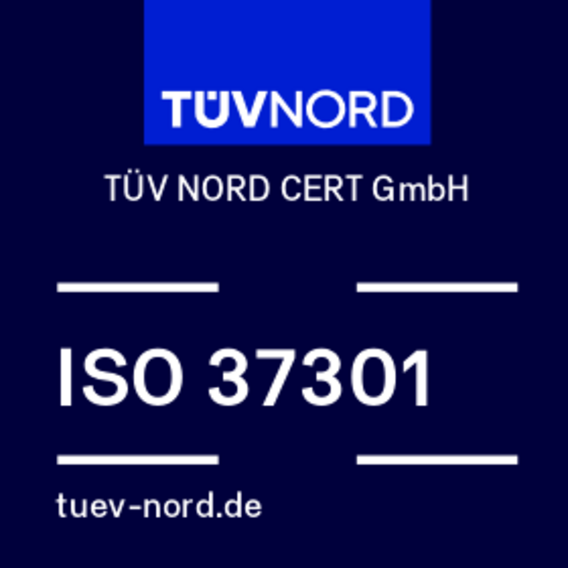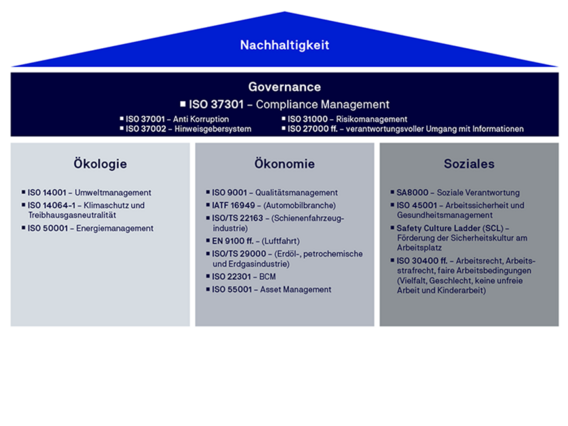ISO 37301 Certification



Compliance is becoming increasingly important worldwide. In the EU and many other parts of the world, honesty and integrity are now among the success factors of corporate management. The standard is an internationally recognised standard that confirms the introduction and maintenance of a compliance management system. As recommended in ISO 37301, the CMS can be integrated into the organisation's management system.
ISO 37301 describes in detail how a CMS must be structured in order to comply with international legal standards and regulations. The standard specifies requirements for the structure, implementation and monitoring of the effectiveness of the CMS and also stipulates compliance with social and ethical values. However, the requirements can be adapted and designed to a certain extent depending on the size of the company and the maturity of the CMS.
Compliance management systems (CMS) are widespread. They are now also used by many small and medium-sized companies.
The target group for ISO 37301 certification includes organisations of all sizes, including small and medium-sized enterprises, that wish to implement and maintain a compliance management system (CMS). This certification is aimed at organisations that want to comply with international legal standards and regulations and integrate social and ethical values into their corporate management.

ISO 37301 plays a crucial role in the context of sustainability by helping organisations to establish an effective compliance management system. This international standard promotes compliance with legal and ethical standards, which is essential for sustainable business practices.
By implementing ISO 37301, organisations can ensure that their operations are not only legally compliant but also socially responsible. This contributes to long-term sustainability by minimising risks and increasing stakeholder trust.
The standard helps organisations achieve their sustainability goals by fostering a culture of integrity and transparency that is critical to success in an increasingly regulated and environmentally conscious world.
The certification process in accordance with ISO 37301 consists of audit preparation, the performance of audit stage 1 with evaluation of the management documentation, the performance of audit stage 2 (based on the results of stage 1), the issuing of the certificate and surveillance / recertification.
ISO 37301 is closely related to ISO 37001, which was introduced in 2016, but the latter focuses on anti-corruption management as part of the compliance management system. Companies considering having their CMS certified in accordance with ISO 37001 can efficiently combine both standards with relatively little effort.